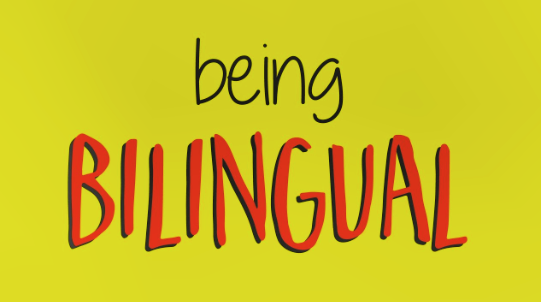I recently went to Europe for two weeks to celebrate my honeymoon. My husband and I visited Lisboa and Porto in Portugal as well as Sevilla and Madrid in Spain. It was beautiful, both countries have so much culture, amazing food, and very nice people.
For some context, both my husband and I are Mexican-American, both bilingual and fluent in English and Spanish. This was a good advantage while traveling in Spain because it was fairly easy to communicate and read signs, but knowing English was helpful in Portugal because we don’t speak Portuguese.
It got me thinking a lot about being bilingual and multilingual while living in the United States, and I think about those videos on Facebook and other social media platforms where people are mocked and harassed for speaking a different language in this country. California went as far as making public education “English Only” in 1998 when Proposition 227 was passed (was later repealed in 2016 when Proposition 58 passed). Can you believe that!?
Being bilingual is never something to be ashamed of, in fact, most countries in Europe require that students learn a different language while in school. In my experience, there is a huge assumption that Americans don’t speak anything other than English. Only 20% of Americans speak more than one language. When in Spain, people were pleasantly surprised when they learned my husband and I were American and that we spoke Spanish fluently.
Which brings me to two important points:
- To students and parents in a bilingual home, learning more than one language is such an advantage everywhere in the world and is a GREAT thing!
- To students who are labeled as an “English Learner” at school, it’s okay to learn English, but don’t lose your first language whether it is Spanish, Vietnamese, Chinese, Arabic etc. Parents, please encourage your child to read in their native tongue, practice their context clues so that they can join the 60-70% of people who speak more than one language in the world.
Time and time again, I’ve seen parents upset about their children being labeled at school as English learners. Many times I’ve seen public schools treat it as if it was a learning disability. It is disheartening to see the different paths students have solely based on whether they are English learners or fluent in English. I encourage all of us to put a stop to the shaming and celebrate the diversity of our communities and fight back racism by retaining our native tongue.
Being able to communicate to people from different backgrounds and different countries is a beautiful thing, language connects people and is such an important way to communicate with others. I hope this inspires you to practice speaking more than one language and also inspires people to visit other places outside of the United States. I’m currently on Duolingo practicing my Portugese!
Melissa Salgado
Latest posts by Melissa Salgado (see all)
- Fundadores Latinos Son Importantes: Joel Portillo Comienza Una Nueva Escuela KIPP Preparatoria en el Área de la Bahía - November 7, 2019
- Latino Founders Are Important: Joel Portillo Starts New KIPP Bay Area High School - October 23, 2019
- Cómo Construir una Cultura de Colaboración Entre Padres y Escuelas - August 13, 2019
- How to Build a Collaborative Culture Between Parents and Schools - August 8, 2019
- Seleccionando la Escuela Preparatoria Correcta: Consejos de Una Consejera de Colocación, de Escuela Preparatoria - July 11, 2019

